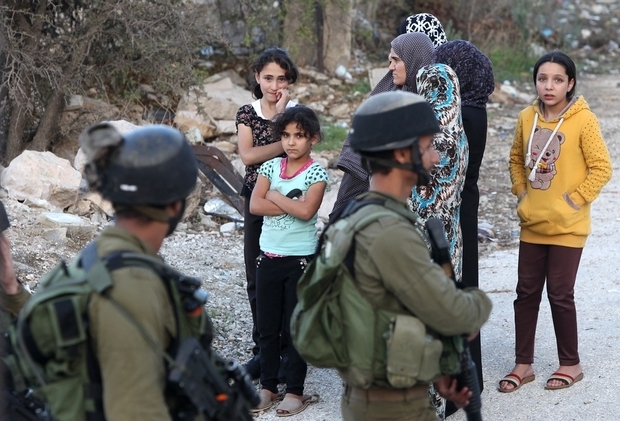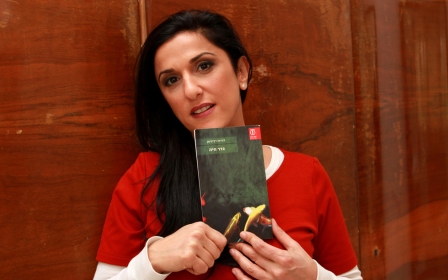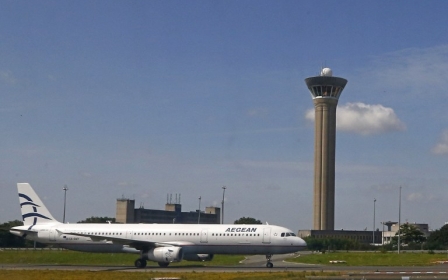In Israel and the occupied territories, shoot to kill is the new normal

The greatest enemy of the struggle against the Israeli occupation is routine. That danger in routine is apparent only in retrospect, looking back at the occupation over time. What was unacceptable yesterday, even unimaginable, becomes today’s routine on the way to tomorrow’s norm. Thus the occupation rolls along from one phase to the next, yet one thing never changes: occupation remains occupation, its manifold aspects hidden in plain sight.
Resistance to the occupation, also ever-present and altering only in its appearance and the means employed to express it, has for some three months now shown a new face as the “Intifada of the Knives” or the “Lone Wolf Rebellion,” or whatever else one wishes to call it. Without anyone organising it, without infrastructure or guiding hand, militant organisations or military headquarters, and nearly without arms or explosives, a new form of violent resistance has emerged. Individual Palestinians, mostly but not exclusively young people, mostly but not exclusively men, get up one morning and decide to act. Their instrument is typically a knife or a pair of scissors, or a privately owned car.
They know their chances of survival are slim and understand that the impact, if any, will be negligible, and yet they decide to take their fate into their own hands and express their resistance violently, by stabbing or running over Jews, mainly soldiers but also civilians, by and large in the occupied territories.
In the last three months, 27 Israelis and more than 150 Palestinians have been killed in almost 100 different incidents of this nature. A few of the Palestinians were killed during demonstrations, but most were killed in attempted terror attacks or what the Israeli authorities designate as attempted terror attacks. Barely a single day passes without one. They have become routine.
At the same time, the Israeli response to these incidents has also become routine. In most cases they end in a summary execution without benefit of trial. There is no other way to accurately describe the Israeli response to these knifings and vehicular assaults. Soldiers, police, and ordinary citizens have received or assumed a license to kill, in each case as a first resort, almost invariably.
Young Palestinians, men and women, boys and girls, who merely brandished a pair of scissors, have been sentenced to death on the spot. Palestinians whose driving was suspect were sentenced to death by live fire. Only a small proportion of the people thus executed were actually endangering the lives of Israeli soldiers or civilians at the time they were killed. The overwhelming majority of them could have been stopped without killing them. But all received the same sentence: death.
Security cameras documented, time after time, that merely showing a knife or a pair of scissors was sufficient to cause everyone in the vicinity to shoot to kill. In the more extreme cases it would also have been possible to shoot to wound rather than to kill - but all the preexisting open-fire regulations have been forgotten as if they had never been. The license is shoot to kill. In fact, the authorities have encouraged this behaviour by uniformed forces and by civilians, and have complimented those who responded thusly. Such behaviour has become not just legitimate but normative, as if no other response were possible.
This suddenly transformed version of the rules has already become the new routine, the legitimacy of which no one in Israel is currently debating. The Israeli finger has never rested as lightly on the trigger and the Israeli public’s indifference to this has never been as total. And in not a few cases, as inevitably occurs when the trigger finger is this itchy, mistakes have been made: people with no intention of hurting anyone are shot to death in criminal killings that now pass as trivial.
It is hard to believe that Mahdiyya Hammad, a 40-year-old mother of four, intended to run over the policemen standing in the road in her village, Silwad. She was driving home to nurse her infant child. They shot dozens of rounds and continued shooting even after she was dead.
Police also shot mistakenly at a family car owned by the Abdallah family of the remote West Bank village of Amuriya, killing Samah Abdallah, 18, a cosmetology student whose father had come especially to take her home from school so that she could avoid the risky journey on public transportation during these dangerous days on the roads.
The soldiers admitted having shot her “by mistake”. Perhaps soldiers were also shooting “by mistake” at Nashat Asfour, a 35-year-old father of three from the village of Sinjil. They fired on him from a distance of 150 meters while he was on his way home from a wedding. Even Ashraqat Kattanani did not have to be killed. Sixteen years old, she pulled out a pair of scissors. Was killing her the only way to control her – a 16-year-old girl in a school uniform? With live fire, shooting to kill? With no warning? Couldn’t the group of soldiers around her have restrained her and prevented her from doing anything? Or at least, shot at her legs? But no, they killed her, too, like so many others, as the preferred response, as the only choice.
As noted, these things have become routine now. When the Swedish foreign minister called them summary executions, Israel was furious. But there is no other way to describe them except as extrajudicial summary executions.
In Israel, the discussion has yet to begin concerning the implications of this dangerous behaviour for Israeli society itself. Today in the territories, tomorrow in Tel Aviv. Today against Palestinians brandishing a pair of scissors, tomorrow against traffic violators. Officially, Israel has no death penalty on its books, except for Nazis and those who aid them. Now Israel has taken a step forward, or maybe backward – a death penalty without even a trial.
When a license to kill is given, and in such a broad manner, and when life has become so cheap – the gradual deterioration is hard to stop. In fact, it has already become routine.
- Gideon Levy is a Haaretz columnist and a member of the newspaper's editorial board. Levy joined Haaretz in 1982, and spent four years as the newspaper's deputy editor. He was awarded the 2015 Olof Palme human rights prize and was the recipient of the Euro-Med Journalist Prize for 2008; the Leipzig Freedom Prize in 2001; the Israeli Journalists’ Union Prize in 1997; and The Association of Human Rights in Israel Award for 1996. His new book, The Punishment of Gaza, has just been published by Verso.
The views expressed in this article belong to the author and do not necessarily reflect the editorial policy of Middle East Eye.
Israeli security forces stand and Palestinians gather at the scene of an alleged attack in Hebron (AFP)
Stay informed with MEE's newsletters
Sign up to get the latest alerts, insights and analysis, starting with Turkey Unpacked
Middle East Eye delivers independent and unrivalled coverage and analysis of the Middle East, North Africa and beyond. To learn more about republishing this content and the associated fees, please fill out this form. More about MEE can be found here.





